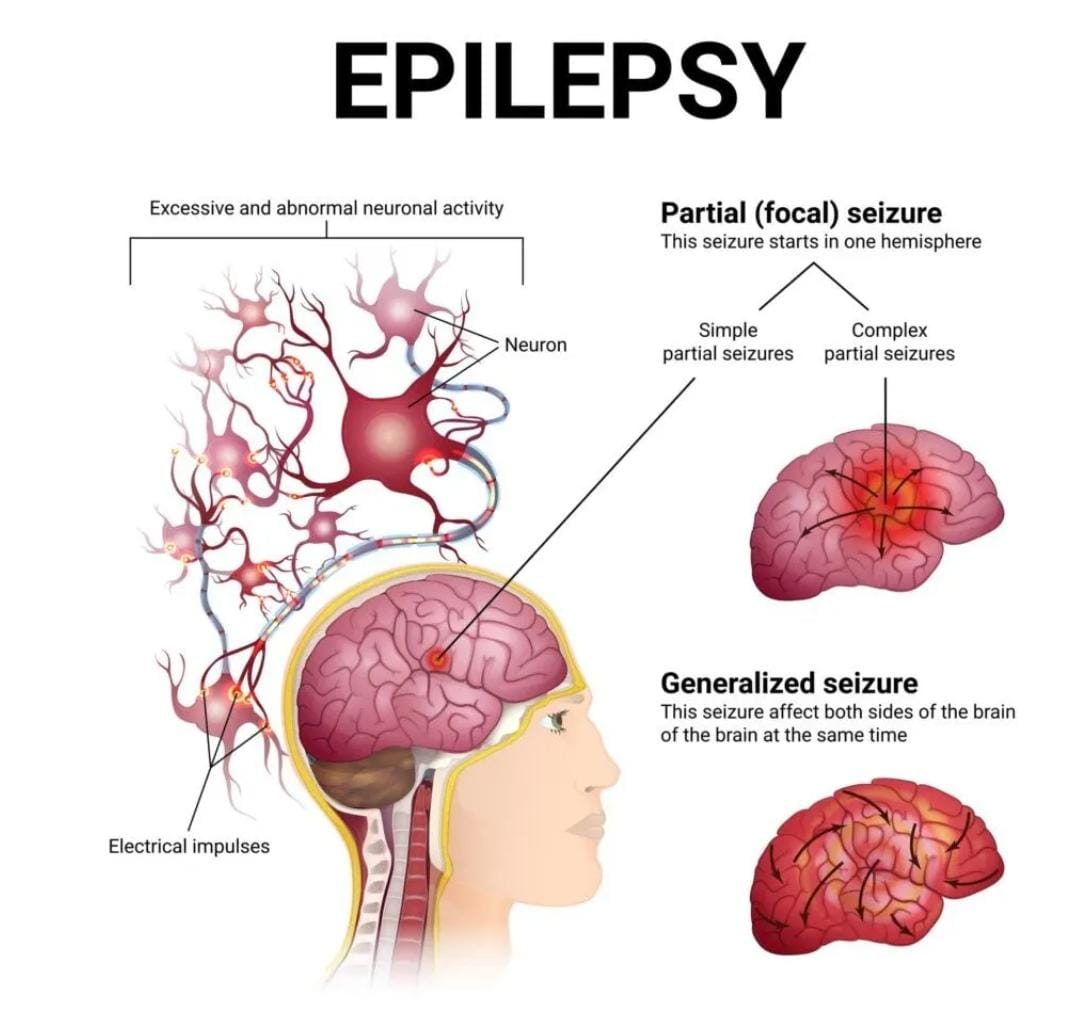
Contact Us
Online Appointments
- No exposure from potent chemicals.
- No withdrawal symptoms
- High efficacy rate
- Individualistic prescribing.
- Minimum dose.
- Rapid, gentle and permanent cure of disease.
- Holistic approach
- Painless process of treatment
- Availability of thousands of fully proved medicines on healthy human beings
- Economic medicines
Epilepsy
Epilepsy is a neurological disorder characterized by recurrent seizures, which are sudden, brief changes in brain function that cause symptoms such as convulsions, loss of consciousness, or altered awareness. Epilepsy can affect people of all ages and can have various causes, including genetic factors, brain injury, infection, or structural abnormalities in the brain.
Types of Seizures:
- Generalized Seizures: Involve widespread electrical disturbances in the brain and can affect both sides of the brain.
- Examples: Tonic-clonic seizures (formerly known as grand mal seizures), absence seizures, myoclonic seizures.
- Focal (Partial) Seizures: Begin in a specific area of the brain and may or may not spread to involve other parts of the brain.
- Simple focal seizures: Consciousness remains intact.
- Complex focal seizures: Altered awareness or loss of consciousness.
Management of Epilepsy:
-
Lifestyle Modifications:
- Regular Sleep Patterns: Maintaining a consistent sleep schedule and ensuring adequate sleep can help reduce the risk of seizures.
- Avoiding Triggers: Identifying and avoiding triggers that may precipitate seizures, such as flashing lights (in photosensitive epilepsy) or certain stressors.
- Limiting Alcohol and Drug Use: Alcohol and certain recreational drugs can lower the seizure threshold and increase the risk of seizures.
-
Seizure Response Plan:
- Developing a seizure response plan with guidance from a healthcare provider can help individuals and their caregivers know what to do during a seizure, including when to seek emergency medical assistance.
-
Vagus Nerve Stimulation (VNS):
- Involves implanting a device that stimulates the vagus nerve in the neck to help reduce seizure frequency and severity.
-
Ketogenic Diet:
- A high-fat, low-carbohydrate diet that may be recommended for individuals with epilepsy, especially those who have not responded well to medications.
-
Surgery:
- Surgical procedures may be considered for individuals with epilepsy who do not respond to medication therapy and have seizures originating from a specific, identifiable area of the brain that can be safely removed or treated surgically.
-
Psychosocial Support:
- Living with epilepsy can have significant psychosocial effects, including anxiety, depression, social stigma, and limitations on daily activities.
- Support groups, counseling, and educational programs can provide emotional support, practical advice, and a sense of community for individuals with epilepsy and their families.
-
Regular Follow-up and Monitoring:
- Regular follow-up appointments with a neurologist or epilepsy specialist are important for monitoring seizure control, adjusting medication dosages as needed, and addressing any concerns or side effects.
Management of epilepsy is often tailored to the individual's specific needs, seizure type, and response to treatment. By working closely with healthcare providers and adopting appropriate management strategies, many individuals with epilepsy can achieve good seizure control and lead fulfilling lives.


